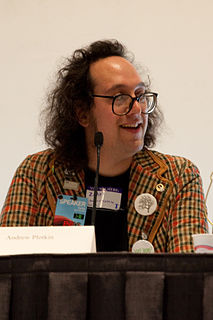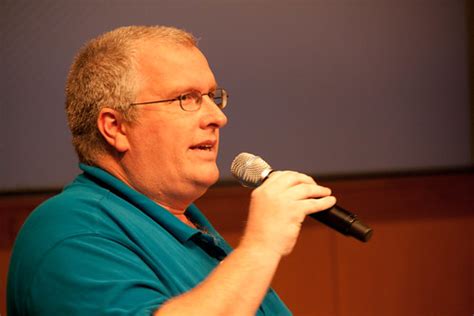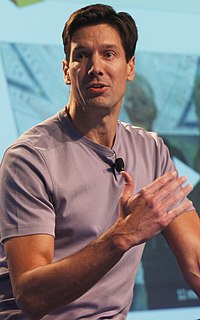A Quote by Bob Frankston
Early Apple machines - don't know how to answer what it was like since there were so few tools. Just had to keep debugging by isolating a problem, looking at memory in the limited debugging (weaker than the DOS DEBUG and no symbols) patch and retry and then re-program, download and try again. And again.
Related Quotes
But is it such a bad thing to live like this for just a little while? Just for a few months of one's life, is it so awful to travel through time with no greater ambition than to find the next lovely meal? Or to learn how to speak a language for no higher purpose than that it pleases your ear to hear it? Or to nap in a garden, in a patch of sunlight, in the middle of the day, right next to your favourite fountain? And then to do it again the next day?
Back when the Bible was written, then edited, then rewritten, then rewritten, then re-edited, then translated from dead languages, then re-translated, then edited, then rewritten, then given to kings for them to take their favorite parts, then rewritten, then re-rewritten, then translated again, then given to the pope for him to approve, then rewritten, then edited again, the re-re-re-re-rewritten again...all based on stories that were told orally 30 to 90 years AFTER they happened.. to people who didnt know how to write... so...
I've never written anything that I haven't wanted to write again. I want to, and still am, writing 'A Few Good Men' again. I didn't know what I was doing then, and I'm still trying to get it right. I would write 'The Social Network' again if they would let me, I'd write 'Moneyball' again. I would write 'The West Wing' again.
Rushing to optimize before the bottlenecks are known may be the only error to have ruined more designs than feature creep. From tortured code to incomprehensible data layouts, the results of obsessing about speed or memory or disk usage at the expense of transparency and simplicity are everywhere. They spawn innumerable bugs and cost millions of man-hours - often, just to get marginal gains in the use of some resource much less expensive than debugging time


































